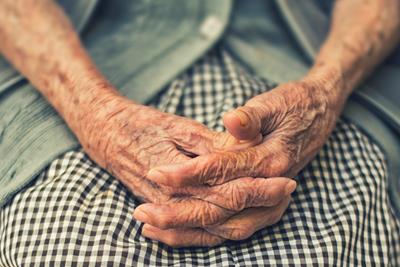
Saturday July 20, 2019
By Erin Hiatt
 420 Culture
420 Culture
It is estimated that as of 2017, around 45 million seniors are living in the United States. And by 2060, that number is expected to more than double, reaching approximately 100 million. The 2010 census showed about 3.1 percent of seniors live in nursing homes, where they can receive the care they need due to the accumulation of medical issues over time, such as cognitive dysfunction like dementia and Alzheimer’s disease, in addition to chronic ailments like diabetes and heart disease.
In 2014, according to the U.S. census bureau, there were 75.4 million baby boomers – the birth cohort born post World War II, spanning 1943-1964 – many of whom came of age in the freewheeling 60s, when cannabis experimentation and use was for many a rite of passage. As boomers have grown older, some have started using cannabis again, or in some cases have simply become more open about consuming. As they move into assisted living or nursing home facilities, many boomers want to add cannabis to their medical regimens. In fact, a recent national survey found that cannabis use for adults ages 65 and over had increased by a whopping 250 percent, and for adults ages 50-65, the percentage had increased 58 percent.
Cannabis and Seniors
Despite the fact that 33 states have some form of medical marijuana law in place, nursing homes have struggled with working out how to allow their residents to consume cannabis, some of whom are medical marijuana patients. Many nursing homes are hesitant to allow cannabis within their confines because of Medicare, a government funded program that seniors receive upon turning 65. Many homes are rightfully worried that allowing cannabis consumption would jeopardize their funding because cannabis is still considered a Schedule I substance and remains illegal under federal law. Nonetheless, some nursing homes are taking matters into their own hands.

Take for example Hebrew Home of Riverdale, a skilled nursing facility just north of New York City. Hebrew Home CEO Dan Reingold told Forbes that after New York legalized medical cannabis, he wanted to ensure that residents of Hebrew Home could consume the plant since he had observed firsthand that his father, who had terminal cancer, benefited from using medical cannabis.
Reingold says he feels an obligation to protect and enforce the rights of those living in long-term care, and cannabis consumption is one of them. “The residents of the Hebrew Home are citizens of the state of New York, and are entitled to the benefits thereof. And one of those benefits is to be able to use medical cannabis in the same way that a citizen of New York would be able to if they didn’t live in the Hebrew Home. Why should we be discriminating against residents of the Hebrew Home because they live in a facility,” he added. Hebrew Home takes careful measures to ensure they properly walk the line of cannabis legality. The facility does not purchase medical cannabis for their patients, residents must purchase their own from a state-licensed dispensary. Additionally, they must self-administer their medicine, or they may have someone else administer it in the form of capsules or tinctures only if that person is not an employee of the facility.
Does Cannabis Help Seniors Live Better Lives?
An article that appeared in the journal of the Society for Post-Acute and Long-Term Care Medicine titled “Medical Cannabis in the Skilled Nursing Facility: A Novel Approach to Improving Symptom Management and Quality of Life,” detailed the experiences of 10 residents, ages 62-100, who had participated in the medical cannabis program. Those who participated had a range of conditions: chronic pain, Parkinson’s disease, and seizures.
Those who experienced chronic pain reported ongoing improvement in the severity of their pain, in addition to the reduction of opioid dosage and an improved sense of well-being.
For Parkinson’s, patients reported improvement in symptoms of rigidity, and for those experiencing seizures, frequency dropped to 1-2 seizures a month, down from twice a week. Other benefits included increased socialization and appetite, pain relief, and an improved quality of life. Other nursing homes, like Laguna Woods in Santa Ana in Southern California, have so many residents using medical cannabis that a local dispensary took note. Bud and Bloom charters a bus that brings residents to their facility and provide a senior discount, as well as a catered lunch. And in Washington, more than a dozen assisted living facilities have adopted marijuana policies.
Chief of Palliative Care at Duke University Medical Center Dr. David Casarett and his colleague Dr. Joshua Briscoe recently wrote an article about medical marijuana for older adults in the Journal of the American Geriatrics Society. Casarett and Briscoe support legalizing medical use, and hope for a reclassification of cannabis so it can be fully studied without federal interference. “You might not like it,” Cassarett told The New York Times. “You might not believe in it. But your patients are using this stuff.” Briscoe added, “We’re always searching for a better medication that can treat pain and a host of other symptoms without burdensome side effects, and cannabis is promising.”
Do you know of any seniors using cannabis in nursing homes? Share your experiences in the comments below.
Photo Credit: Cristian Newman (license)







